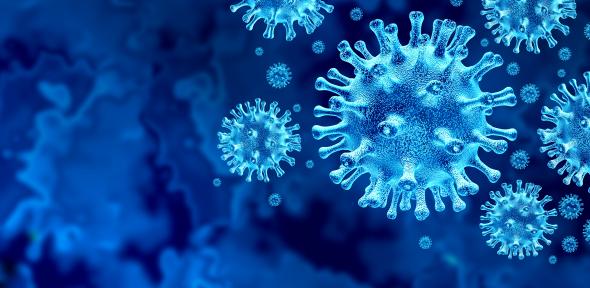Institute of Continuing Education (ICE)

Submitted by Amy Kingham on Tue, 01/09/2020 - 14:50
Dr Chris Smith works as a Consultant Virologist at Addenbrooke’s Hospital and is the Public Understanding of Science Fellow here at ICE. He is also the founder of The Naked Scientists. Created and launched in 2001, the Naked Scientists was one of the first ever podcasts and is now one of the world’s most popular science shows. Here, he shares how his career began and how he has been managing his time between NHS worker and broadcaster since the pandemic broke out.
“My career is a strange one. After starting out as a medical student, I very quickly became hooked on science and research, adding an extra degree and then a PhD into the middle of it. It was during my PhD that I started making radio programmes and podcasts. I noticed a gap in the market; there wasn’t very much on the TV or radio that would have attracted the young me in the same way I’d been captivated by inspirational science communicators and I really wanted to change that. The podcast grew an international following pretty quickly and we are now well north of 120 million downloads of our programmes around the world.”
“We’re now in a situation where we have the world in the grip of a pandemic and I’m in the slightly unique position of being both a virologist and a broadcaster; of being someone who knew what they were doing medically but also knew how to put the points across to the public.
“I’ve been working professionally in the field throughout the pandemic, helping to manage the hospital and local health authorities' responses to coronavirus. Working as a virologist in Addenbrookes has been crazily busy, but we were slightly more prepared than we were with the swine flu pandemic of 2009. We were able to cut the routine work and put all our resources into coronavirus testing straightaway.
“Having bought ourselves some time, we’re now spending a lot more of our days in meetings than we are physically picking up test tubes and pipettes. The challenge now is planning scenarios and brainstorming how we're going to run things, what policies to put in place and how to try to minimise the impact of this as winter approaches and coronavirus returns flanked by the usual seasonal suspects, like flu.
“On top of this work, I’ve been doing a huge amount of broadcasting. Soon after the pandemic came about, it was clear that people wanted accurate and trustworthy information about what was happening. We began communicating this through our own programme, translating content that was literally coming straight off the journals and putting it out into the public space very, very quickly.
“Of course, every other programme wanted to do this too. Never in the history of broadcasting has a pathogen had its own network level radio programme, but several channels quickly turned over their airtime to coronavirus. When 5Live found themselves with three spare hours on a Saturday afternoon, the slot usually reserved for football, we created the common-sense coronavirus call-in. Colin Murray and I had never met but we did this every Saturday for three and a half months. I was in my studio at home and he was in his flat in London, we couldn’t see each other and neither of us knew what the other was going to say so it was a pretty chaotic mix.
“You never know what’s going to come up or what people are going to throw at you. I had never done broadcasting like this before but it was an enormous confidence boost and a really amazing learning experience.”
“Yes I do. Never before has the role played by Universities, researchers and science and its importance to society been more visible. The public know that the reason we know everything we do about this, and the reason we are ultimately going to get out of this is largely because of science and medicine.
“People are getting to see what it is that scientists do. We’ve had a whole panoply of disciplines, very much front and centre in the news. To the credit of the media, they haven’t held back. They’ve found high quality scientists, science reporters and commentators and put them up front to get their message across.”
If you would like to find out more about the courses we offer here at ICE, including our Postgraduate Certificate in Practical Science Communication and Undergraduate Certificate in Infectious Diseases, visit www.ice.cam.ac.uk/biological-sciences
Find out more about the Naked Scientists at www.thenakedscientists.com
-------
This article was originally published as part of the 2020 Long Vacation - Michaelmas edition of Inside ICE.